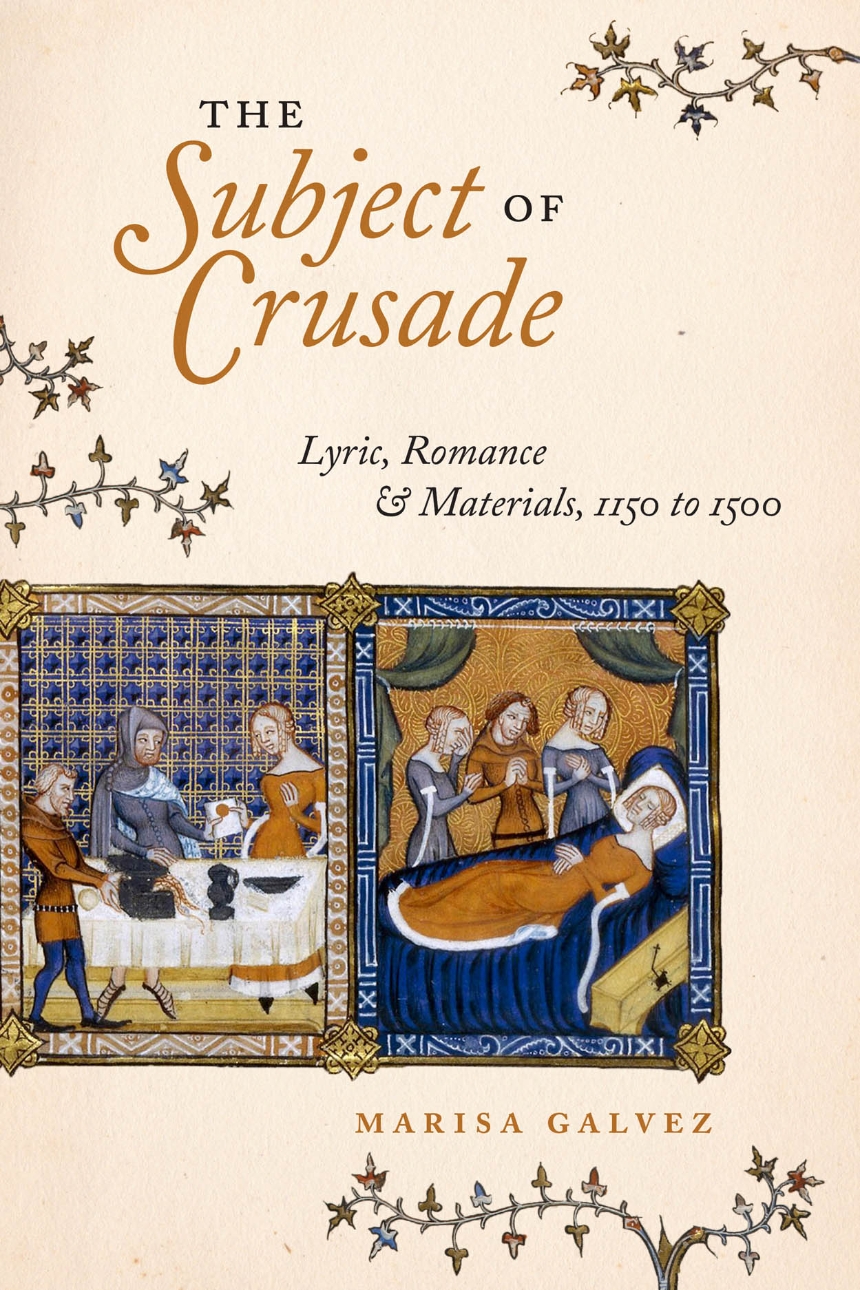The Subject of Crusade
Lyric, Romance, and Materials, 1150 to 1500
9780226693354
9780226693217
9780226693491
The Subject of Crusade
Lyric, Romance, and Materials, 1150 to 1500
In the Middle Ages, religious crusaders took up arms, prayed, bade farewell to their families, and marched off to fight in holy wars. These Christian soldiers also created accounts of their lives in lyric poetry, putting words to the experience of personal sacrifice and the pious struggle associated with holy war. The crusaders affirmed their commitment to fighting to claim a distant land while revealing their feelings as they left behind their loved ones, homes, and earthly duties. Their poems and related visual works offer us insight into the crusaders’ lives and values at the boundaries of earthly and spiritual duties, body and soul, holy devotion and courtly love.
In The Subject of Crusade, Marisa Galvez offers a nuanced view of holy war and crusade poetry, reading these lyric works within a wider conversation with religion and culture. Arguing for an interdisciplinary treatment of crusade lyric, she shows how such poems are crucial for understanding the crusades as a complex cultural and historical phenomenon. Placing them in conversation with chronicles, knightly handbooks, artworks, and confessional and pastoral texts, she identifies a particular “crusade idiom” that emerged out of the conflict between pious and earthly duties. Galvez fashions an expanded understanding of the creative works made by crusaders to reveal their experiences, desires, ideologies, and reasons for taking up the cross.
In The Subject of Crusade, Marisa Galvez offers a nuanced view of holy war and crusade poetry, reading these lyric works within a wider conversation with religion and culture. Arguing for an interdisciplinary treatment of crusade lyric, she shows how such poems are crucial for understanding the crusades as a complex cultural and historical phenomenon. Placing them in conversation with chronicles, knightly handbooks, artworks, and confessional and pastoral texts, she identifies a particular “crusade idiom” that emerged out of the conflict between pious and earthly duties. Galvez fashions an expanded understanding of the creative works made by crusaders to reveal their experiences, desires, ideologies, and reasons for taking up the cross.
280 pages | 14 color plates, 12 halftones | 5-1/2 x 8-1/2 | © 2020
Art: European Art
History: European History
Literature and Literary Criticism: Romance Languages
Reviews
Table of Contents
List of Illustrations
Introduction The Courtly Crusade Idiom
Chapter One The Unrepentant Crusader: The Figure of the Separated Heart
Chapter Two Idiomatic Movement and Separation in Middle High German and Occitan Crusade Departure Lyric
Chapter Three The Heart as Witness: Lyric and Romance
Chapter Four Lancelot as Unrepentant Crusader in the Perlesvaus
Chapter Five Three Ways of Describing a Crusader-Poet: Adjacency, Genre-Existence, and Performative Reconfigurations
Chapter Six The Feast of the Pheasant as Courtly Crusade Idiom
Conclusion Toward a More Complex View of Crusade
Acknowledgments
Notes
Index
Introduction The Courtly Crusade Idiom
Chapter One The Unrepentant Crusader: The Figure of the Separated Heart
Chapter Two Idiomatic Movement and Separation in Middle High German and Occitan Crusade Departure Lyric
Chapter Three The Heart as Witness: Lyric and Romance
Chapter Four Lancelot as Unrepentant Crusader in the Perlesvaus
Chapter Five Three Ways of Describing a Crusader-Poet: Adjacency, Genre-Existence, and Performative Reconfigurations
Chapter Six The Feast of the Pheasant as Courtly Crusade Idiom
Conclusion Toward a More Complex View of Crusade
Acknowledgments
Notes
Index
